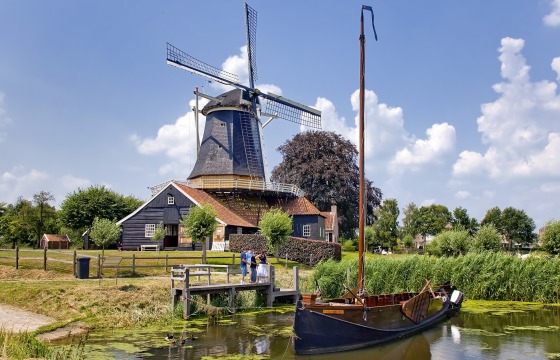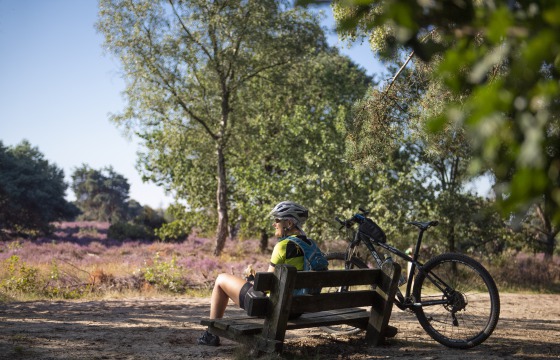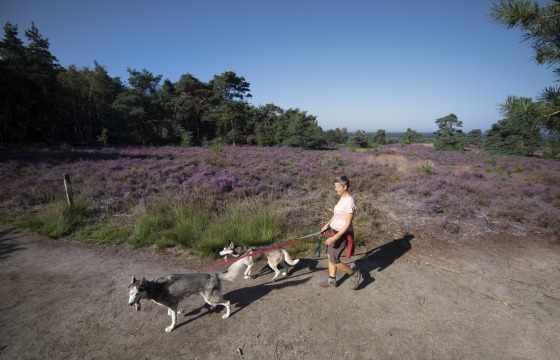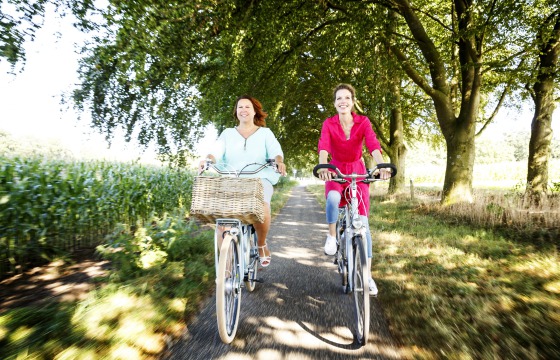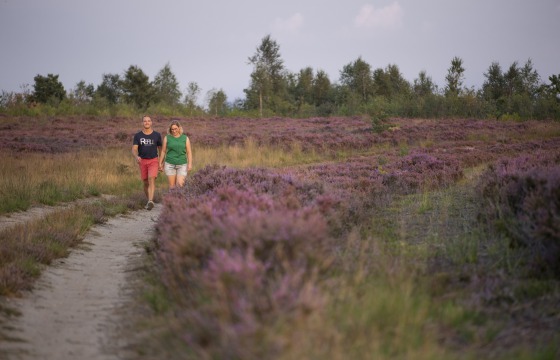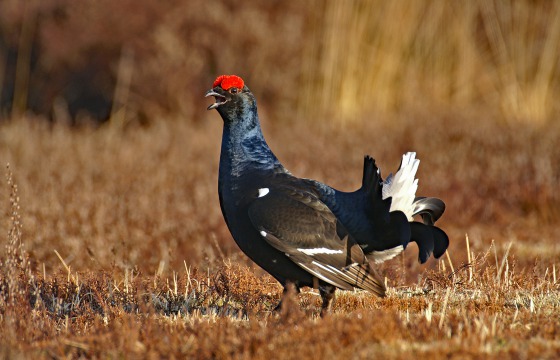The ground underfoot is sandy and hilly. Rare juniper shrubs with their irregular silhouettes add depth. Do stay on the paths, because snakes love to sleep among the heather. The deciduous forests are expansive yet friendly, thanks to the beech trees and squirrels. They are interspersed by mysterious pine forests where daylight struggles to reach and the morning mist hangs around for a long time.
Enchanting, like a fairy tale
Time and again, a mysterious white steeple pops up above the forest, like a real enchanted castle hidden in the woods. It is: around 1900, textiles baron Palthe had a ‘teahouse’ built on the hill, so he and his ‘chums’ could have a drink after a hunt. The less modest manor house with its so-called Palthe-tower followed soon after. The tower, with windows at varying heights was built specifically for stargazing.
Rhododendrons
All in good time. The heathland makes us wait for its blooms until the end of summer, the rhododendrons take their turn at the start of summer. Exuberant, majestic and proud. All thanks to the landowners of times gone by: they planted rhododendrons to create good hiding places for hunters. These plants are also called castle weeds because of their speedy growth.
Routes
The National Park covers about 35 km2. It has many marvellous paths for walking, with routes ranging from 2 km to 13 km. All routes start at one of the three visitor’s centres: Outdoor Centre Sallandse Heuvelrug in Nijverdal (north), Holterberg Nature Museum (south) and Erve De Pas near Haarle (west). Parking is free and coffee is always waiting for you, with a slice of something nice if you like.
Tip:
Tavern De Pas is impressively old. Travellers have been coming here since 1750, Louis Bonaparte being one of them.





